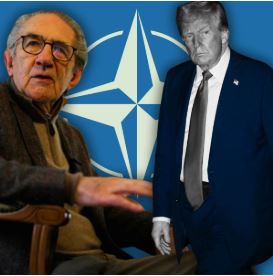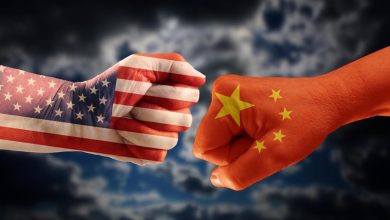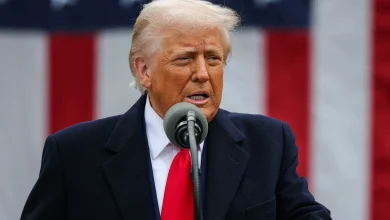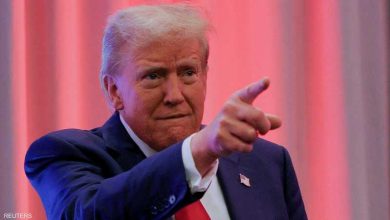The former secretary general of NATO, Willie Claes, “disgusted” by the anti-European remarks of Trump

This article was automatically translated from HIBAPRESS, the Arabic version:
Hibapress-Rabat
When the Belgian Willy Claes took office as UTO secretary general in 1994, Bill Clinton was president of the United States and the Cold War was over and Europe still considered American protection as acquired, but today, he is “disgusted” by the anti-allied position of the Donald Trump administration and his rapprochement with Russia.
Former Belgian Minister for Foreign Affairs, 86, said in an interview with AFP since his home that their “contempt is incredible”.
“I do not understand why they act so anti-European and show solidarity with the Russians at the expense of their former allies. It disgusts me.
Claus’ mandate at the head of NATO only lasted 13 months, the shortest of his mandate, and ended when he was forced to resign in the midst of a corruption scandal.
But it is a sensitive period for the alliance, which seeks a meaning after the collapse of the Soviet Union and the launch of its first military operation with its intervention in the Balkans.
NATO now seems to be confronted at another decisive moment while Trump shakes the foundations of the security system on which the West has been built in the past seven decades.
Claes said that he “impatiently awaited” the NATO summit in Hague in June to give Trump a signal on the continuation of the alliance in its current form.
“We will know if the United States intends to honor the commitments they made when NATO was created. If you don’t, it will be very painful for us, Europeans.
In the midst of questions about Washington’s commitment, Claes insists that Europe must seek a “greater autonomy” in the decisions taken within the Alliance.
During her mandate, NATO had 16 members, but now has 32 countries, and consensus has become more difficult to reach.
Claes recognizes that Europe is often divided, some countries, such as Hungary, preferring “dialogue with Moscow”.
“How can we discuss secret decisions about armaments with partners such as Hungary, Slovakia and even Turkey?” He asks.
Among other reasons, Russia has justified its invasion of Ukraine as a reaction to the approach of NATO at its borders, which the West rejected as a fragile justification for the expansionist ambitions of Vladimir Putin.
According to Claes, American President George W. Bush made a calculation error in 2008 by pushing the Alliance to say that Ukraine and Georgia, the former Soviet republics, would one day become NATO members.
“He surprised the French and the Germans,” said Claes about Bush, adding that “Putin thought we are getting closer to its borders”.
Shortly after, Russia launched a lightning war in Georgia which opens the way to successive tensions.
Another error occurred in 2013 when Barack Obama, Bush’s successor, withdrew at the last minute of hitting Syria after accused Bashar al-Assad of using chemical weapons.
“Obama made a mistake, he gave Putin a sign of weakness. This is when the Kremlin said, “It’s time to move on. »»
For the moment, Claes claims that it is unlikely that Moscow will launch an attack on a member state of NATO, given the extreme weakness of the Russian army in Ukraine.
“But I cannot hide my concerns about nuclear weapons. »»
“It is urgent to resume dialogue between the great powers on the control of armaments and, if possible, on disarmament. All of humanity is in danger.







